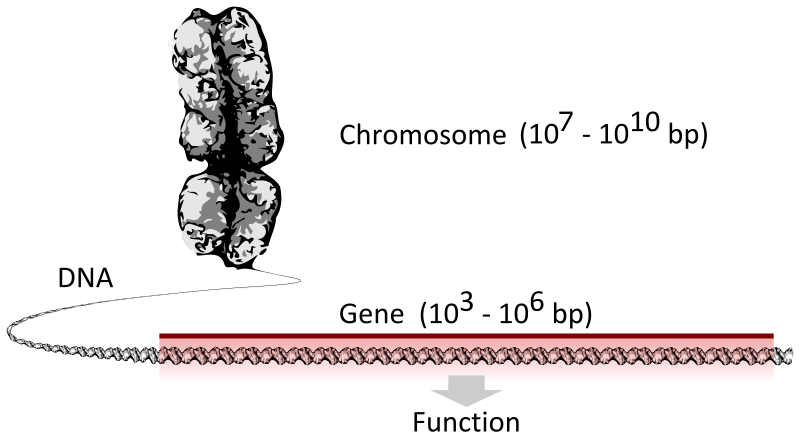
[Contention 1:] We humans like to think of ourselves as on the top of the heap compared to all the other living things on our planet. Life has evolved over three billion years from simple one-celled creatures through to multicellular plants and animals coming in all shapes and sizes and abilities. In addition to growing ecological complexity, over the history of life we’ve also seen the evolution of intelligence, complex societies and technological invention, until we arrive today at people flying around the world at 35,000 feet discussing the in-flight movie.
Yes. It’s almost like we are in charge of the planet, at least morally and intellectually.
Researchers assumed that that meant we would have a lot of genes.
[Contention 2:] About a half-century ago the estimated number of human genes was in the millions. Today we’re down to about 20,000. We now know, for example, that bananas, with their 30,000 genes, have 50 percent more genes than we do.
…
Extrapolating the analysis beyond the human knockouts study leads to an estimate that only 3,000 human genes are actually needed to build a healthy human. This is in the same ballpark as the number of genes in “giant viruses.” Pandoravirus, recovered from 30,000-year-old Siberian ice in 2014, is the largest virus known to date and has 2,500 genes.
A reasonable person would assume that genes aren’t nearly what they are made out to be. So the solution is…
[Contention 3:] There is a growing field of study – dubbed “sociomicrobiology” – that examines the extraordinarily complex social lives of microbes, which stand up in comparison with our own. My own contributions to these areas concern giving viruses their rightful place in this invisible soap opera.
We have become aware in the last decade that microbes spend over 90 percent of their lives as biofilms, which may best be thought of as biological tissue. More.
In other words, microbes are like ants; their complex social lives feature everything except conscious individual intelligence. That’s a find, for sure, but we are still where we were, except for the demise of genetic fundamentalism, not much missed.
In other words, naturalism was dead wrong in the past. It will be deader wrong in the future.
See also: What great physicists have said about immateriality and consciousness
Follow UD News at Twitter!